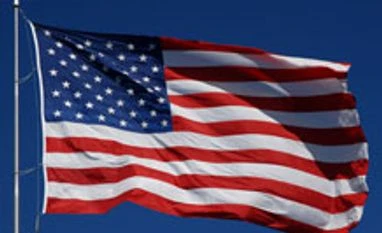The United States is coordinating "additional steps" with its European allies to slap more sanctions on Russia over the crisis in Ukraine, a US official said today.
Secretary of State John Kerry spoke by phone with his French, German and British counterparts, as well as EU foreign policy chief Catherine Ashton.
But new sanctions are unlikely to be unveiled before crunch talks slated for Thursday in Geneva, State Department spokeswoman Jen Psaki told reporters.
"Not only do we anticipate additional sanctions at some point, we're preparing additional steps," she said.
These could include targeting more individuals and perhaps upping the ante to bar access to some key sectors, such as mining, energy and financial services.
"I will say that in terms of how we look at the timing and our strategic approach, Thursday, in our view, is likely the next step here, because it's an opportunity for everybody to sit down at the table and have a discussion," Psaki said.
Top diplomats from Russia and Ukraine are due to sit down for the first time with their counterparts from the United States and the EU to try to resolve the crisis that has seen Moscow mass tens of thousands of troops along Ukraine's eastern border.
The White House said that Ukraine faces an "untenable" situation over separatist uprisings in the east and described its military operation against bands of pro-Russia militants as "measured."
White House spokesman Jay Carney preached restraint and "all due caution," but said the Ukrainian government had a "responsibility" to safeguard law and order.
Ukraine's leaders sent tanks and troops toward the flashpoint city of Slavyansk in response to the seizure of government buildings by pro-Russian gunmen.
During the months-long crisis that has deepened since Moscow annexed Ukraine's southern Crimea peninsula, the EU and US have already blacklisted many Russian officials as well as Crimea's separatist leaders in a bid to force Moscow into taking a step backwards.
"There's always been an off-ramp, and so if Russia were to take de-escalatory steps, certainly we would calibrate our own response," Psaki said, saying one thing Moscow could do would be to pull back its troops.
Secretary of State John Kerry spoke by phone with his French, German and British counterparts, as well as EU foreign policy chief Catherine Ashton.
But new sanctions are unlikely to be unveiled before crunch talks slated for Thursday in Geneva, State Department spokeswoman Jen Psaki told reporters.
More From This Section
"Our national security team is in active discussions about the next round of sanctions," Psaki said, adding that US coordination with the European Union was "a priority."
"Not only do we anticipate additional sanctions at some point, we're preparing additional steps," she said.
These could include targeting more individuals and perhaps upping the ante to bar access to some key sectors, such as mining, energy and financial services.
"I will say that in terms of how we look at the timing and our strategic approach, Thursday, in our view, is likely the next step here, because it's an opportunity for everybody to sit down at the table and have a discussion," Psaki said.
Top diplomats from Russia and Ukraine are due to sit down for the first time with their counterparts from the United States and the EU to try to resolve the crisis that has seen Moscow mass tens of thousands of troops along Ukraine's eastern border.
The White House said that Ukraine faces an "untenable" situation over separatist uprisings in the east and described its military operation against bands of pro-Russia militants as "measured."
White House spokesman Jay Carney preached restraint and "all due caution," but said the Ukrainian government had a "responsibility" to safeguard law and order.
Ukraine's leaders sent tanks and troops toward the flashpoint city of Slavyansk in response to the seizure of government buildings by pro-Russian gunmen.
During the months-long crisis that has deepened since Moscow annexed Ukraine's southern Crimea peninsula, the EU and US have already blacklisted many Russian officials as well as Crimea's separatist leaders in a bid to force Moscow into taking a step backwards.
"There's always been an off-ramp, and so if Russia were to take de-escalatory steps, certainly we would calibrate our own response," Psaki said, saying one thing Moscow could do would be to pull back its troops.
)